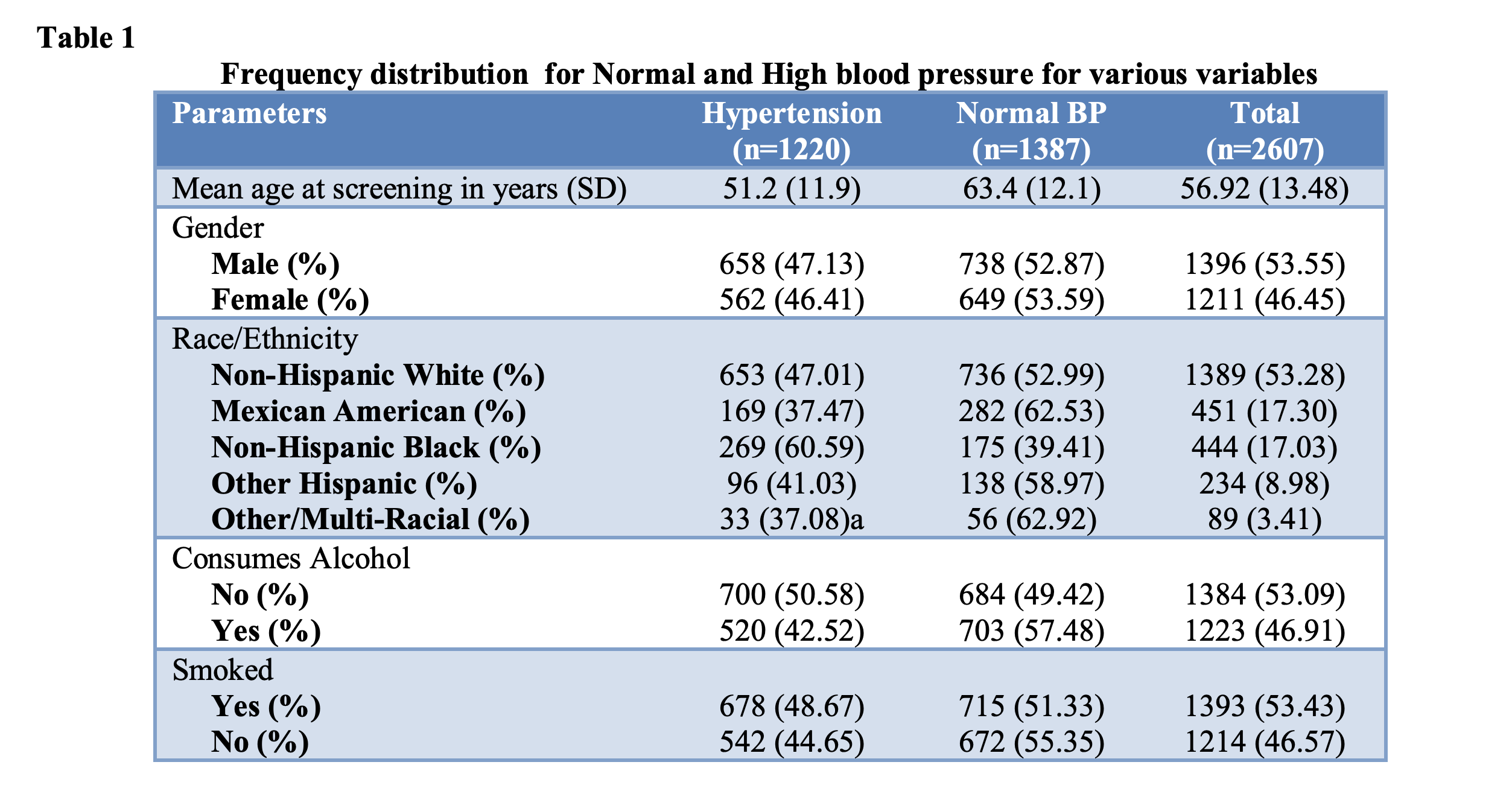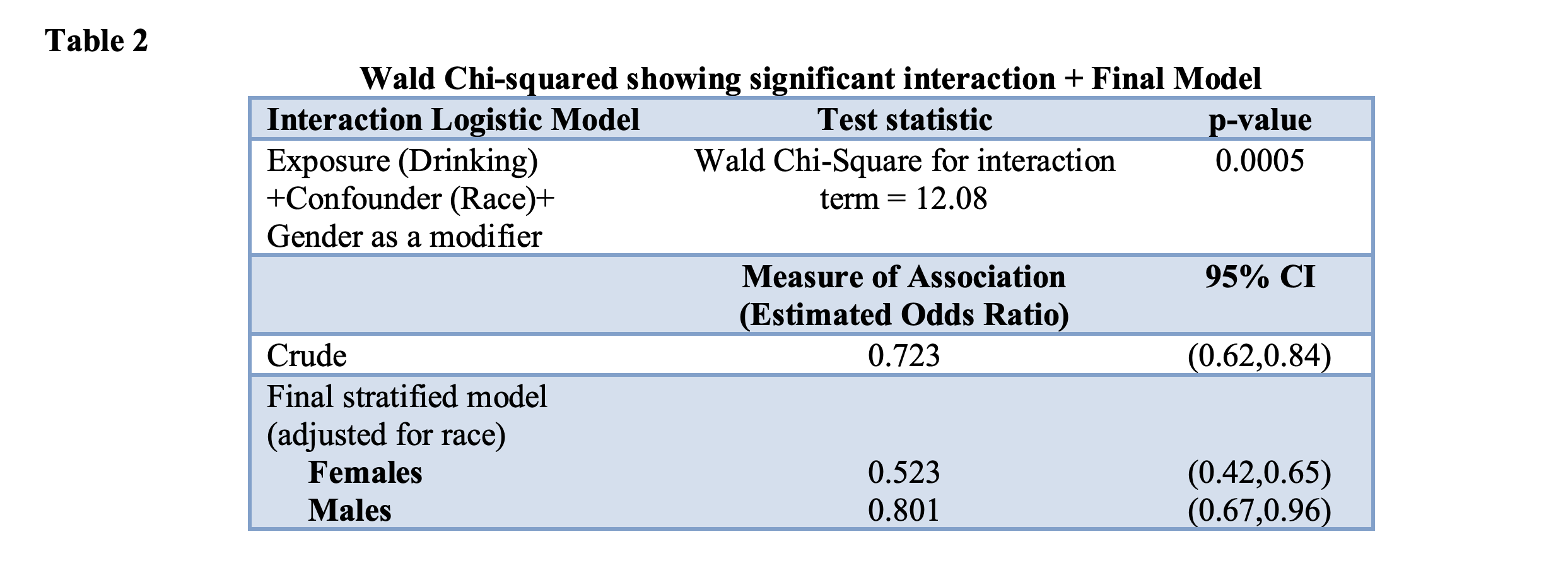
Alcohol consumption demonstrates a protective effect towards hypertension – Assessing the association between alcohol use and high blood pressure in NHANES 2009-2010.
You can find the data and SAS code for data analysis here.
Background
Alcohol consumption and has been shown to have diverse and complex effects on cardiovascular disease and it’s risk factors, including hypertension. While the short-term effect of alcohol on blood pressure is well established, the risk of hypertension comparing those who drink and don’t drink is unknown. The goal of the analysis was to examine whether individuals that consume alcohol have higher risk of hypertension, and whether this association is confounded/modified by smoking, race, or gender.
Methods
Our data source was the NHANES 2009-2010 data set. Our main exposure was alcohol consumption, a binary variable where drinkers were defined as having >12 drinks/year (moderate/regular) or having <12 drinks/year (non/light drinkers). Hypertension was defined as having a systolic measure >140, or diastolic measure >90, or currently taking hypertension medication. Data was also collected on demographic variables such as age, gender and race. Logistic regression was used to determine an association between alcohol consumption and hypertension. Additionally, we adjusted for race/ethnicity and included gender as a modifier.
Findings
2607 subjects were examined, with subjects being excluded for missing or extreme variables. Race was determined to be a confounder and gender was found to modify the association. Among females, the odds of hypertension for drinkers was 0.523 times the odds of hypertension for nondrinkers after adjusting for race (95% CI:0.419,0.653). Among males, the odds of hypertension for drinkers was 0.801 times the odds of hypertension for nondrinkers after adjusting for race (95% CI:0.669,0.960).
Interpretation
While there was a significant association between alcohol consumption and hypertension in our model, the odds of hypertension were found to be higher for non-drinkers, the opposite of our original hypothesis.
Conclusion
Alcohol consumption was shown to have a protective effect towards the outcome of hypertension in the NHANES cohort.

